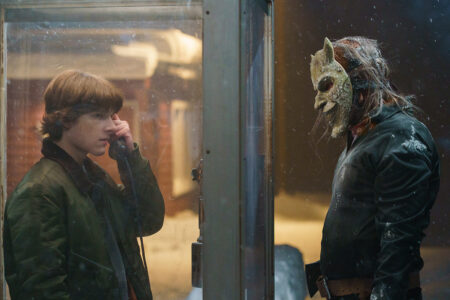Hawaii’s hourly minimum wage goes up 50 cents
For an estimated 37,000 workers across the state, 2015 brings new change – 50 cents to be exact – as Hawaii’s minimum wage increased from $7.25 to $7.75 per hour on New Year’s Day.
And that’s just the first step in an incremental, four-step wage increase signed into law by Gov. Neil Abercrombie in May. Hawaii is now inching toward a $10.10 hourly minimum wage, which will take effect Jan. 1, 2018. In the interim, the state’s minimum wage is scheduled to increase to $8.50 an hour on Jan. 1, 2016, then bump up to $9.25 a year later.
This is good news for low-wage workers, including those on Maui.
Elisabeth Nakashima, 20, works as a shift leader at Pretzelmaker at the Queen Ka’ahumanu Center. Her starting wage one year ago was $7.25 an hour, but now she makes $8 an hour. At $8 an hour, a full-time employee would earn roughly $16,000 annually.
“I was excited when I heard that the minimum wage was going up,” said Nakashima. “Fifty cents seems small, but I know how much it can add up in the long run.”
Nakashima has felt the strain of Maui’s high cost of living. “I don’t plan on staying on Maui, and the cost of living definitely has a lot to do with that choice,” she said. “There aren’t really a lot of big opportunities here, and I know I’m more likely to get a better job on the Mainland than I am here.”
The modest increase to $7.75 an hour shouldn’t worry too many local employers, like McDonald’s, which, on average, pays its cashiers and crew members between $8 and $9 an hour.
In a statement last month, McDonald’s USA responded to the impending wage hikes, saying, “We believe that any minimum wage increase should be implemented over time so that the impact on owners of small- and medium-sized businesses – like the ones who own and operate the majority of our restaurants – is manageable. Additionally, we believe that any increase needs to be considered in a broad context, one that considers, for example, the impact of the Affordable Care Act and its definition of ‘full-time’ employment, as well as the treatment, from a tax perspective, of investments made by businesses owners.”
The statement also noted that roughly 90 percent of McDonald’s restaurants are independently owned and operated. Therefore, franchisees set their own hourly wages.
At Pretzelmaker, Nakashima also sees a potential disadvantage to the wage hike.
“When the minimum wage goes up to $10.10, prices in our store are going to have to go up as well to compensate for the change. If prices are going to rise with the minimum wage, then I can’t really see how the wage going up is going to help us. We’ll just be right back to where we started.”
Maui Chamber of Commerce President Pamela Tumpap could not be reached Friday but in “The Chamber View” column in The Maui News on March 8 she expressed her opposition to minimum-wage hikes. She noted that increasing the state’s minimum wage would benefit fewer than 4 percent of low-income working families and a higher wage would have no effect on poverty.
In addition, Tumpap wrote that large increases in the cost of labor could lead to higher prices or reduced employment, particularly for teenagers with minimum wage jobs.
However, a June 2014 survey published by the American Sustainable Business Council and Business for a Fair Minimum Wage found that 61 percent of small business owners nationwide supported a phased-in increase of the federal minimum wage to $10.10 per hour. The survey also suggested that small business owners believe a higher minimum wage would boost consumer purchasing power and contribute to lower employee turnover, increased productivity and overall customer satisfaction.
Hawaii is one of 21 states that saw a minimum wage increase in 2015. It was also the third state to pass legislation to raise the minimum wage above the $10 mark, following Connecticut and Maryland, according to the National Conference of State Legislators.
Twenty-nine states and the District of Columbia currently have minimum wages above the federal hourly minimum of $7.25, which has been in place since 2009.
But the federal minimum wage may soon follow suit. The Fair Minimum Wage Act of 2013, which was introduced last year and backed by President Barack Obama, would increase the minimum wage in three steps, from $7.25 to $10.10 per hour. The rate would be adjusted to account for inflation each year thereafter. The bill is currently stalled in Congress.
The new Hawaii minimum wage law also benefits tipped employees, increasing the tip credit to 50 cents an hour beginning this year and 75 cents an hour starting Jan. 1, 2016, provided that the combined amount an employee receives in wages and tips is at least $7 more than the applicable minimum wage.
* Sarah Ruppenthal can be reached at sruppenthal@mauinews.com.





